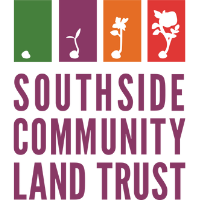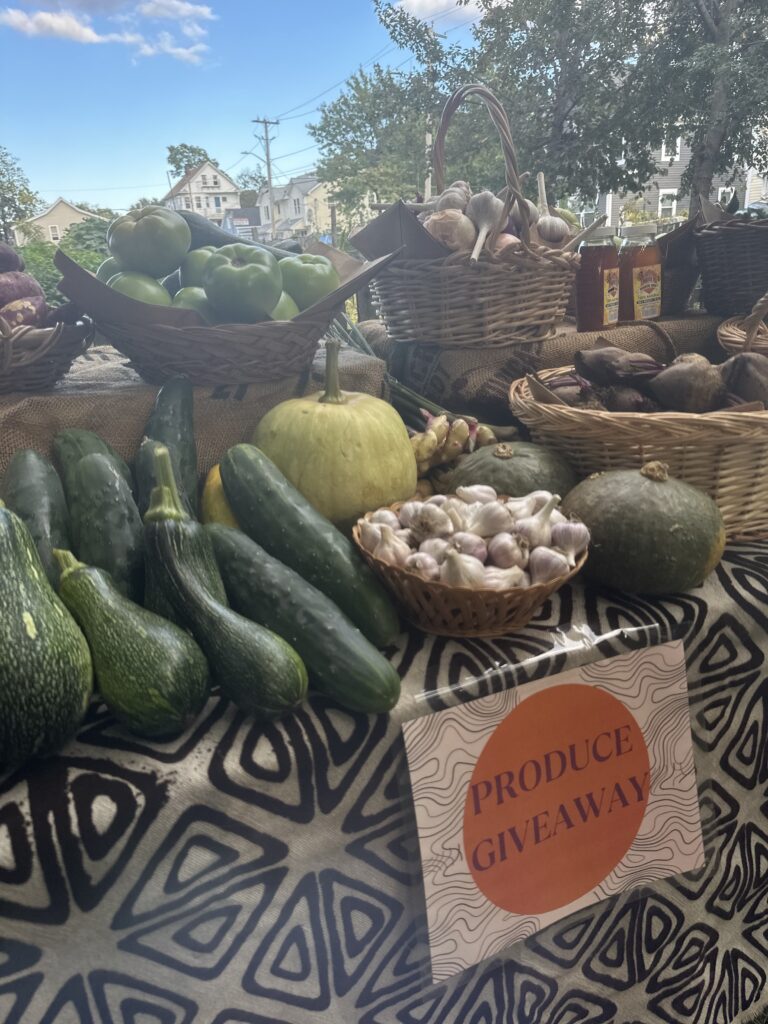
Robert Yaffe at SCLT’s City Farm in 2019, courtesy of Providence Monthly
When Rob Yaffe passed away on February 12, 2025, Rhode Island lost more than a successful restaurateur—it lost a visionary who transformed how our community thinks about food, sustainability, and the connections between them.
Rob’s journey began with a rich family legacy. His grandmother Reggie adopted a raw food vegan diet and began practicing yoga and meditation as early as 1940—decades before these practices became mainstream. His mother Erna continued this tradition by opening The Golden Sheaf in 1971, Providence’s first natural foods store. When Rob was just 23, his mother passed away unexpectedly, putting him in charge of the store. This early responsibility shaped his understanding of how food businesses could serve as anchors for community change.
In 1996, Rob opened Garden Grille in Pawtucket, establishing what would become Rhode Island’s longest-running vegetarian restaurant. He later expanded his vision with Wildflour Vegan Bakery and Cafe in 2010, and The Grange in 2013, which operated for nine years on Broadway in Providence. Through these establishments, Rob created spaces where plant-based eating wasn’t just accessible—it was exciting and delicious. “It’s about community,” Rob once said about his restaurants’ mission. “We exist to provide experiences where people connect with each other. If we’re not doing that, then why are we here?”
Rob’s relationship with Southside Community Land Trust was deep and enduring. He and his wife Uschi supported SCLT in countless ways over the years—hosting fundraisers, donating food from their restaurants to our events, and even donating all profits from their Table to Farm fundraiser at The Grange to support our work. After seeing the documentary “A Place at the Table” about hunger in the United States, Rob organized a screening in partnership with SCLT at Congregation Beth Sholom, demonstrating his commitment to food justice beyond his own restaurants.
As a business owner, Rob practiced what he preached. His restaurants were among the largest customers of Farm Fresh RI, and they regularly purchased produce from the Little City Growers Coop that started with Southside. In a 2019 interview with Providence Monthly, Rob noted: “We’re in the middle of a major shift. It’s not just what you eat, but where are you getting it from?” This question of provenance—of knowing your food’s origins and the hands that grew it—remains central to SCLT’s mission today.
Rob understood that his support of SCLT served a deeper purpose. “Helping Southside is a way to enable people who can’t afford to eat out to nonetheless be able to buy and grow organic, healthy food,” he explained. “Our missions are completely aligned.” This statement captures the essence of Rob’s approach to business and community—recognizing that true food system change must include everyone, regardless of economic status.
Though Rob wasn’t preachy about vegetarianism (only Wildflour was completely vegan), he delighted in hearing from new customers who were surprised by how satisfying meatless dishes could be. “We’re able to give people a transformative experience,” he said. “We have an opportunity to change peoples’ consciousness.” This philosophy of gentle transformation rather than forceful conversion characterized his approach to advancing plant-based eating in Rhode Island.
As we at Southside Community Land Trust continue our work to create a more just and sustainable local food system, we carry Rob Yaffe’s legacy with us. His vision of connecting good food with community, his belief in making healthy options accessible to all, and his quiet persistence in transforming our food landscape will continue to inspire our mission for years to come.


 Southside Community Land Trust and Roots 2Empower invite you to join us for the first in a powerful series of workshops exploring the intersection of food justice, Black agricultural heritage, and community empowerment.
Southside Community Land Trust and Roots 2Empower invite you to join us for the first in a powerful series of workshops exploring the intersection of food justice, Black agricultural heritage, and community empowerment.
